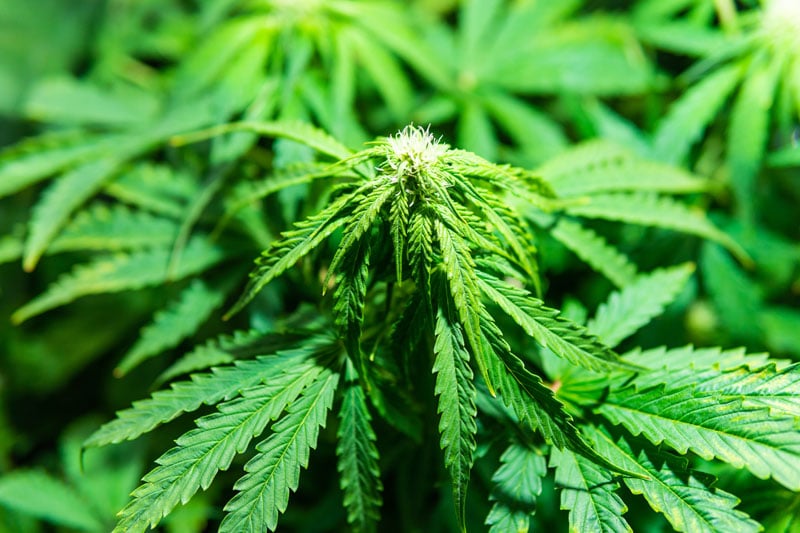The CBD craze officially began in December 2018, when President Trump signed the 2018 Farm Bill into law. This omnibus agricultural package accomplished many things, but one of the most noticeable changes it accomplished was the formal legalization of CBD, allowing for the product to be grown, processed and sold in the United States.
This legislation sent CBD’s popularity through the roof. Financial estimates exploded, with some experts saying that CBD could generate as much as $22 billion by 2022. Survey data backed up this estimate, with a new poll showing that 1 in 7 Americans have now tried CBD.
This explosion in demand saw a proliferation of websites and brick and mortar stores pop up to meet demand. These stores sell a variety of CBD goods, including tinctures, balms, capsules, vaping juices, and edibles.
However, it is the adding of CBD to food and drink that has caused some controversy. And that’s where Congress may soon be weighing in.
CBD and the FDA
The United States Food & Drug Administration is responsible for the regulation and approval of all foods, drinks, and medicines in the United States. Their approval process is notoriously long, and many within the CBD industry have been watching them, awaiting this approval of CBD and additional regulations regarding testing, marketing, and marketing of the substance.
Unfortunately for the industry, the FDA’s guidance, which came out on November 25, put a damper on the industry. The comments were decidedly not favorable towards CBD. In their update, the FDA noted:
-
- Research on CBD is still evolving, but there is not adequate evidence to describe CBD as safe for use. Furthermore, the FDA stated that there are multiple side effects of CBD, and that CBD can cause liver damage.
- Marketing CBD as medicine is illegal, with the exception of the prescription of Epidiolex, a CBD-based drug used to treat two rare seizure disorders in children (and which the FDA formally approved for prescription last year). The FDA has aggressively pushed back on CBD vendors who have marketed CBD as having medical benefits, as these benefits have not been clearly established by already existing science. Indeed, on the same day that this update was published, the FDA sent warning letters to fifteen companies for violating this guidance.
- Though CBD could be marketed as a supplement, it could not be marketed as a dietary additive. Given the amount of CBD food & drink products already on the market, this presented a major problem.
- Many questions remain about CBD, including consequences of long-term use, ideal therapeutic doses, interactions with other drugs, interactions with fetuses or nursing moms, and more.
- Further regulations would come out in the future as more research became available.
This guidance slowed down business interest in the industry. The ban on marketing CBD as a dietary supplement was a particular blow to the industry, scaring off many vendors from entering the market. Furthermore, while regulations such as these typically take 2-3 years, CBD may even take longer. According to Scott Gottlieb, former FDA Commissioner, these regulations could take as long as five years, given the complexities of CBD and how little is known about the product.
All of this uncertainty put a huge damper on the market. Big businesses and finance companies need legal certainty before investing millions (if not billions) in a product. Of course, this makes sense. After all, what business would want to put their hard-earned capital behind a project, only to discover later that their time and money cannot be recouped?
Proposed Legislation
This uncertainty has led to proposed legislation in Congress which could force the FDA’s hand.
On January 15, a group of House Democrats and Republicans introduced HR 5587. The legislation was formally sponsored by Rep. Collin Peterson (D-Minn), who is also the Chairman of the House Agriculture Committee. HR 5587 would require that the FDA regulate CBD as a dietary supplement. Doing so would allow for CBD to be marketed as such. This, in turn, would provide the legal certainty that businesses and consumers crave, potentially clearing the way for CBD to be sold as a food or drink by more companies. Doing so could unleash a flood of capital and further enhance CBD’s popularity among consumers.
At the moment, three other House members are co-sponsoring the legislation: Reps. Chellie Pingree (D-ME), James Comer (R-KY) and Thomas Massie (R-KY). The two Republicans are particularly important because they are both from Kentucky. That matters because Senate Majority Leader Mitch McConnell is also from Kentucky. Indeed, Senator McConnell was one of the driving forces behind CBDs legalization in
2018. Kentucky has significantly benefitted from the legalization of hemp and CBD and having Kentucky Republicans support the bill bodes well for its chances of ultimately passing in the Senate.
The legislation was referred to the House Subcommittee on Health, a part of the Committee on Energy and Commerce. A hearing was held on January 15 which mentioned this bill and others.
In a press release, Peterson said that the legislation would provide a “pathway forward” for CBD. He also specifically noted his legislation’s ability to help farmers and remove challenges that the CBD industry currently faces.
Potential Benefit to Consumers and Business
As noted above, consumers and businesses could both stand to benefit significantly from Peterson’s bill. It would formally remove a major barrier to the CBD industry and allow for CBD to be sold in even greater numbers.
There are concerns, of course. On balance, many studies have shown that CBD does appear to have numerous physical and emotional benefits. That is not to say it is without potential drawbacks, as there are drug interactions and fears that CBD could hurt liver function. Furthermore, many of the long-term issues noted by the FDA are valid: There are quite a few things we do not yet know about the long-term impact of CBD.
That being said, CBD is clearly caught in an odd regulatory half-world. On the one hand, it’s legal to sell and consume. On the other, it’s not legal to sell and consume in certain ways. This legislation would end that regulatory oddity.
Of course, there’s more at play than just consumer convenience. As noted by many financial experts, the FDA’s regulatory stance has hammered the stocks of companies that sell CBD and marijuana. If Peterson’s bill were to pass, it would be a huge boon to many of these businesses and their shareholders.
What Comes Next
While HR 5587 was referred to a committee, it has yet to have its own hearing or a vote. Peterson is a high ranking Democrat, and his support on an issue like this is critical. This certainly bodes well for the future of HR5587. If this bill were to pass the House and move on to the Senate, it likely faces greater challenges, as the Republican-led Senate has been notoriously hostile to Democratic bills. However, given the importance of CBD and hemp to the Majority Leader’s home state of Kentucky, this legislation would seem to have a greater chance than most of going the distance and becoming law.
FAQs About The Possible Changes In CBD Regulation
Question: Is a CBD change coming?
Answer: There might be changes in the regulation of CBD. The CBD craze officially began in December 2018, when President Trump signed the 2018 Farm Bill into law. This omnibus agricultural package accomplished many things, but one of the most noticeable changes it accomplished was the formal legalization of CBD.
Question: Does the FDA approve the use of CBD products?
Answer: Though this may change, as of this writing, the FDA still doesn’t approve the use of CBD products. FDA stated that there are multiple side effects of CBD and that CBD can cause liver damage.
Question: What is the stand of the congress about CBD products?
Answer: On January 15, the Congress introduced HR 5587. HR 5587 would require that the FDA regulate CBD as a dietary supplement.
Question: Will CBD consumers and businesses benefit from the HR 5587 bill?
Answer: Consumers and businesses could both benefit significantly from the HR 5587 bill. It would formally remove a major barrier to the CBD industry and allow for CBD to be sold in even greater numbers.
Question: Who passed the HR 5587 bill?
Answer: The legislation was formally sponsored by Rep. Collin Peterson (D-Minn), who is also the Chairman of the House Agriculture Committee.







